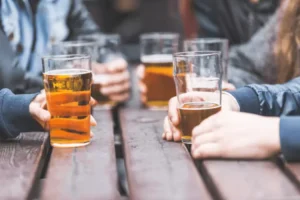
Our ability to overcome and stay focused minimizes the impact these triggers can have. Triggers that happen outside of the individual are not necessarily beyond control. There are multiple reminders of substance use in a former drug user’s life, including people, places and things.

Substance Abuse Triggers
Journaling and self-reflection are essential tools for identifying and managing addiction triggers. Keeping a regular record of your experiences with triggers can help you learn from past instances and build more robust strategies for future recovery efforts. Self-reflection can internal and external triggers help to identify negative thought patterns and underlying beliefs that may lead to relapse. Developing self-awareness, honing coping skills, and utilizing support systems are effective strategies for managing relapse triggers after exploring relapse and its coping strategies.

Have a Safety Plan in Place
Resilience equips individuals with the strength to weather challenges, adapt to change, and persist in their recovery journey. In doing so, it fosters personal growth and self-confidence, fortifying the path toward sustained recovery. It requires introspection, patience, and, often, the guidance of a mental health professional.

Relapse Triggers
While some people may not understand your actions, over time they will have to learn how to respect your choices. However, if avoidance hinders your ability to function, you should seek help. Another potential benefit is that these warnings can help improve individual empowerment, allowing people to make informed choices about how they engage with information. Some people cope with stressful events more easily than others; consider the impact such events might have on people with mental illnesses. In rats and humans, the hormone corticosterone increases the level of dopamine, a brain chemical that plays a major role in reward-seeking behavior, in the brain in response to stress.
Start your recovery with Massachusetts Center for Addiction
Or a person with alcohol use disorder might be triggered by the smell of alcohol and suddenly start craving a drink. Find a convenient place to jot down your thoughts and feelings each day, reflecting on the moments that brought you joy or gratitude. By taking just a few minutes of your time, you’ll cultivate positivity in your life. As a result of this increased awareness, your emotional reactions may feel more understandable, valid, predictable, and less out of control.
What Are Withdrawal Symptoms and How to Manage Them
What are the top 3 factors that contribute to relapse?
- You may even consider keeping a daily journal to record your experiences.
- Sometimes, it’s necessary to distance yourself from friends who still engage in substance use to avoid being tempted or triggered by their behaviors.
- There are two main types of triggers that can start someone towards the path of relapse.
- After removing the corticosterone-producing glands from the rats, researchers observed a lack of relapse behavior after triggering them with low doses of cocaine.
- After addiction treatment, people who have faced alcohol and drug abuse now have the opportunity to implement a relapse prevention plan to maintain sobriety.
- For example, a news report covering a trauma similar to what you experienced might trigger symptoms of PTSD.
